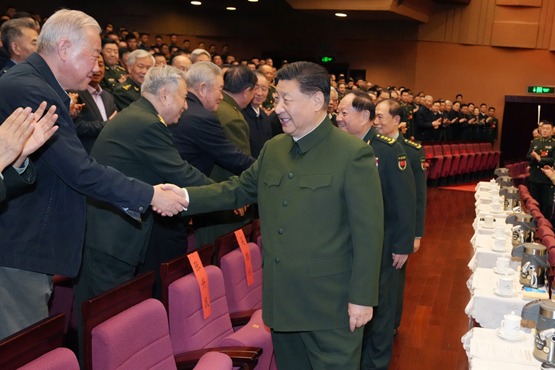New media outlets to improve govt services


System to be built by 2022 will offer public more information and convenience
A system of government-run new media outlets, led by those operated by the central government's gov.cn website, should be built by 2022 to offer punctual information disclosure, policy responses and services for the public, according to a recent notice.
The document, disclosed on Dec 27 by the State Council, China's Cabinet, aims to achieve healthy long-term development of government-operated new media accounts across the country, which experts said is expected to facilitate people's dealings with government and help transform governmental functions.
According to the notice, government-run new media outlets include those managed by government departments at all levels on third-party new media platforms, such as the Sina Weibo micro-blogging platform and the WeChat instant-messaging service, and applications independently developed by the departments.
In the age of mobile internet, government-operated new media outlets are key to accelerating the transformation of governmental functions and building a service-oriented government, the document said. In recent years, they have helped promote government information disclosure, the optimization of government services, the achievement of social consensus and innovation in social governance.
The document requires all departments to provide faster online services with accurate explanations, strengthened responses and enhanced interaction with the public. In principle, governments above the county level and State Council departments should open new media accounts, with no more than one account on each third-party platform.
In the past few years, the central government has been committed to administrative streamlining, delegation of power to lower levels and improvement of governmental services, with information disclosure and online services as key tasks.
Since 2014, the General Office of the State Council has named microblogging a key task for government information disclosure. Over the years, hundreds of applications have been developed by government departments to update information on new policies, the improvement of people's welfare, and responses to public concerns.
For example, the State Council app, run by gov.cn, covers central government policies, documents, the major activities of leaders such as Premier Li Keqiang, vice-premiers and State councilors, and connects to other government-related services. The app had more than 20 million users just 10 months after its launch in Feb 2016.
According to the big data website gsdata.cn, the WeChat account Zhengfu, run by gov.cn, ranked first in 2017 among all government WeChat accounts nationwide, receiving the views of more than 168 million people and nearly 3 million likes.
By the end of June, governments at all levels had registered 175,800 micro-blogging accounts, which attracted about 2.9 billion followers with more than 152 billion views, according to the 2018 China New Media Development Report.
Zhu Lijia, a professor of public management at the Chinese Academy of Governance, said government-owned new media outlets are essentially service platforms, which are online extensions for the government to interact with the public. Management of the outlets should take services as the fundamental mission, based on precise disclosure and active interactions, he said.
Zhao Zizhong, head of the new media research institute at Communication University of China, said the system of government-run new media accounts set out in the notice is an important way for governments to improve their services.
The rapid development of the internet has changed modes of communication, and also the way people's procedures are handled in government service halls, Zhao said. However, progress in information services has lagged behind that achieved in the halls, he said, and new media could play a key role in administrative streamlining.
Meanwhile, the notice also pointed out that some accounts have had problems, such as unclear functions, uncoordinated information disclosure and poor management. Some even existed as zombie accounts, with no interaction and services for users.
Zhao said the core issue for government-operated new media accounts lies in how they are managed.
"The government should work harder to meet the public's demand for useful information," he said. "In the age of new media, interactions with the people are becoming increasingly important by clarifying policies for them."





































